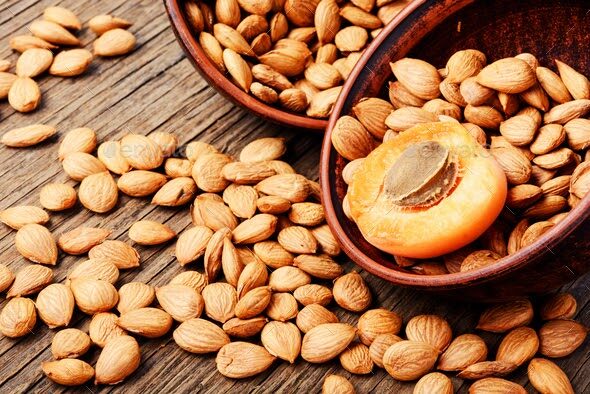The Power of Apricot Seeds: A Natural Supplement

For generations, apricot seeds have been revered for their health properties, which are just as potent today. Packed with nutritional value, these seeds are a powerhouse of vitamins and minerals. While often overshadowed by the fruit itself, these kernels might hold the key to a myriad of health benefits including, some claim, cancer-fighting properties. However, it’s vital to approach them with an informed perspective. In this article, we will explore the nutritional properties, potential health benefits, and the precautions to take when adding apricot seeds to your diet.
Apricot Seeds And Cancer: Sifting Fact From Fiction
The link between apricot seeds and cancer treatment mainly involves amygdalin and its potential effects on cancer cells. Stories of miraculous cancer cures often circulate in natural health circles, but scientific evidence is yet to conclusively back these claims. The main concern is the risk posed by the cyanide that can be released as amygdalin metabolizes.
Cancer specialists are urging caution, advising patients not to replace conventional treatments with unproven natural remedies such as apricot seed ingestion. The body of research into whether apricot seeds can be safely utilized as part of cancer therapy is still in its infancy. Therefore, clinical recommendations remain cautious.
Some laboratory studies and limited trials have observed anti-cancer effects from compounds within apricot seeds, but these are far from definitive. Practitioners of natural medicine often point to such studies, but the medical community at large continues to seek more extensive research before concluding.
Incorporating Apricot Seeds Into Your Diet: Safe Practices And Dosage
For those interested in adding apricot seeds to their diet, it’s essential to start with small quantities. Due to the presence of amygdalin, which can release cyanide, there is a strict threshold to how much should be consumed. Sticking to recommended guidelines can help mitigate the risks associated with overconsumption.
When introducing apricot seeds, it is recommended to do so gradually, allowing the body to adjust. This serves two purposes: it helps monitor the body’s reaction to the new food and reduces the chance of negative effects. Integrating them into your diet can be as simple as adding crushed kernels to your morning yogurt or smoothie.
While apricot seeds can be eaten on their own, they are often more palatable when used as an ingredient in more complex recipes. They can lend a nutty flavor to baked goods, salads, and homemade granola. However, as with any supplement, it’s important to consult a nutritionist or healthcare provider to determine the appropriate dosage for your individual health needs.
The Nutritional Profile of Apricot Seeds: Vitamins and Minerals Unveiled
Apricot seeds, also known as kernels, are rich in nutrients essential for maintaining good health. They boast a significant amount of protein, fiber, and a healthy dose of monounsaturated fats, which are beneficial for heart health. These unsung heroes of the nutrient world are sources of important vitamins, including B17, commonly known as amygdalin.
The mineral composition of apricot seeds includes potassium, magnesium, and iron, which play crucial roles in bodily functions such as oxygen transport, muscle contraction, and maintaining healthy blood pressure levels. Their nutrient density makes them a valuable addition to a balanced diet, offering a concentrated dose of the essentials.
Incorporating these seeds into your diet can be simple, with apricot pits for sale readily available for those looking to enrich their nutritional intake. However, it’s crucial to understand their properties fully, especially the compound amygdalin, before doing so.
More Than a Cancer Debate: Other Health Benefits of Apricot Seeds
Despite the controversy surrounding apricot seeds in cancer discussions, there are other potential health benefits that receive less attention. The seeds contain compounds that may have anti-inflammatory properties, which can be beneficial for those suffering from chronic inflammation or pain.
Moreover, apricot seeds contain an array of beneficial compounds like antioxidants, which may aid in protecting the body against damage from free radicals. These molecules are known to contribute to the natural aging process and may play a part in the development of some diseases.
Altogether, while apricot seeds are a subject often entangled in cancer cure discussions, they have broader implications for health due to their nutrient content. However, the line between usage and over-usage is thin and should be navigated with caution and professional advice. The potential benefits, paired with the known risks, make for a nuanced addition to dietary discussions and personal health choices.




